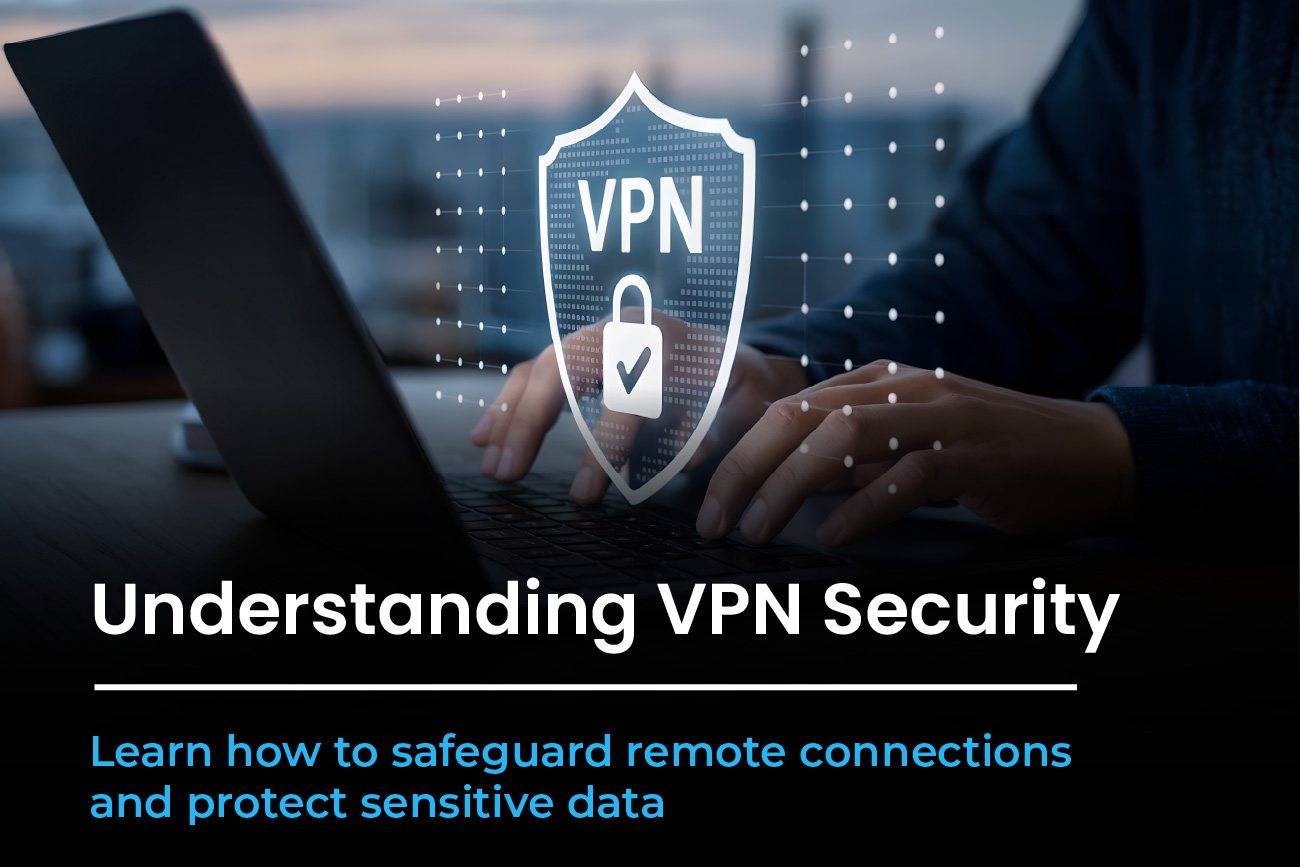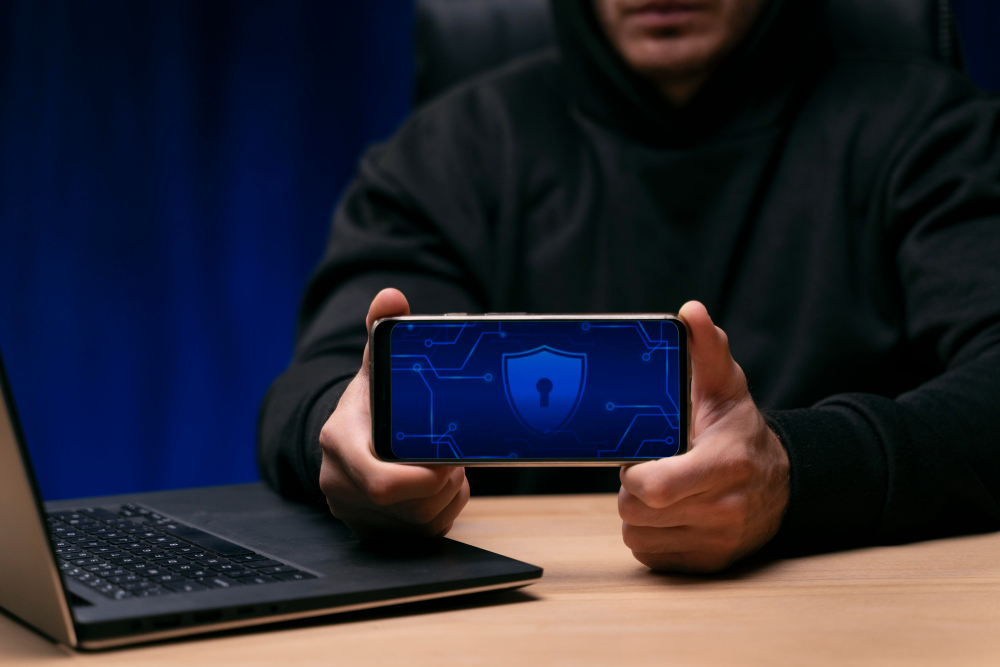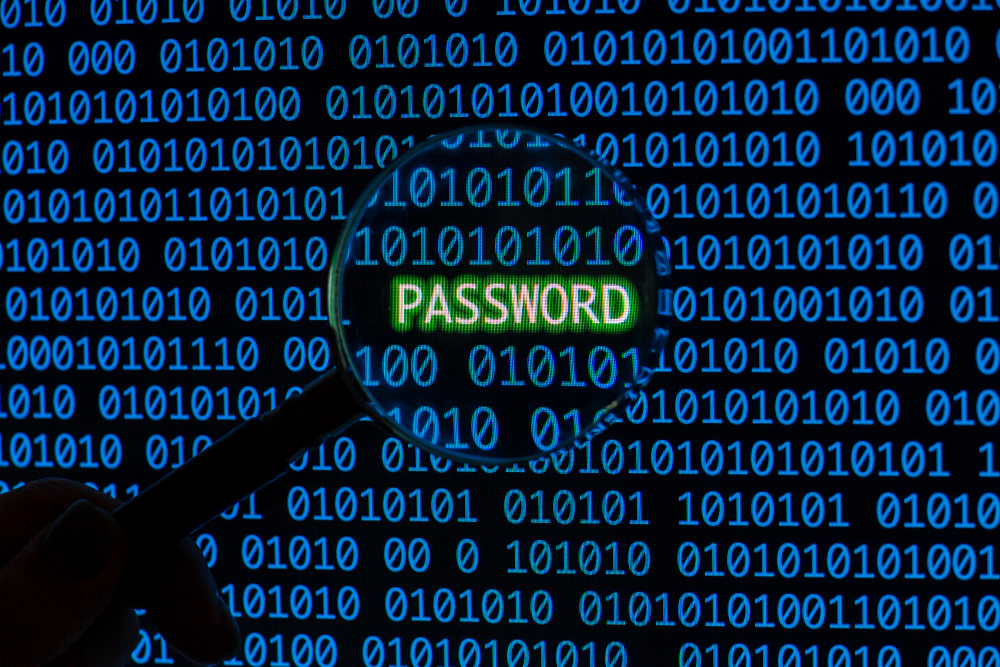VPN Security Best Practices for Businesses

In 2025, over 93% of organizations use VPNs to secure remote access for employees and offices, according to a Windscribe survey. With remote and hybrid work reshaping how teams connect, VPN security has become a central part of conversations around data protection and compliance. For years, VPNs have been the go-to solution for linking users to corporate systems. Yet as the security landscape evolves, we often hear a critical question: Are VPNs still the best way to protect sensitive data, or have they introduced new risks along the way?
In this article, we explore what VPN security really means today, the biggest risks businesses face, the protocols that matter, and the best practices that can help strengthen network defenses.
What is VPN Security?
A Virtual Private Network (VPN) creates an encrypted tunnel between a user and a network. This tunnel hides the user’s IP address and encrypts data so that attackers or third parties cannot intercept it. At a high level, the idea sounds simple: protect the flow of information.
While discussing VPN in network security, two use cases usually dominate. The first is to secure remote connections for employees who need to use company systems from outside the office. The second one is to secure communications over unprotected networks, such as public Wi-Fi.
However, a security VPN is only as robust as its deployment and management. Organizations often feel that acquiring the finest VPN for security would solve their problems, but real-world security is primarily reliant on configuration, access controls, and continuous monitoring.
Why Organizations Still Rely on VPNs?
Despite rising interest in zero trust solutions, VPNs continue to play an important role. Many teams still see them as their lifeline for remote work. When employees connect from home, client sites, or while traveling, VPNs allow them to securely access internal applications.
VPNs also contribute to compliance. Regulators often require encryption of sensitive data in transit, and a VPN for security helps organizations meet that expectation. During the pandemic, VPNs became the default tool to enable business continuity, and even today, many companies run operations around the assumption that the best security VPN is enough to protect their workforce.
That reliance isn’t misplaced, but it comes with caveats. A VPN can either serve as a reliable lock or become an unlocked back door, depending on how it is configured and maintained.
The Key VPN Security Risks
VPNs are not perfect. In fact, mismanaged or outdated VPNs can create new attack surfaces. According to industry publications and talks with CISOs, we regularly see the following VPN security risks:
A single point of failure: A compromised VPN credential can grant attackers access to the entire network.
Weak authentication: Many VPNs use passwords that attackers can steal or brute force.
Patch delays: Ransomware groups frequently target unpatched VPN apps.
Scalability difficulties: Traditional VPNs were not built to handle thousands of remote workers, resulting in performance and reliability issues.
Visibility gaps: VPNs often don’t provide detailed logs of user activity, limiting the ability to spot suspicious behaviour.
VPN Security Protocols Explained
Protocols dictate how data is sent and encrypted in a VPN, and selecting the appropriate one affects both performance and security. OpenVPN, for example, is open source and largely regarded as one of the most secure. IPsec is commonly used for site-to-site VPNs due to its robust encryption, but L2TP paired with IPsec adds an additional layer of tunnelling.
IKEv2/IPsec is a popular choice among mobile users because to its reliability when moving between Wi-Fi and cellular networks. WireGuard has recently emerged as a popular modern alternative, hailed for its speed and simplicity.
When evaluating the best VPN for internet security, firms should consider protocol compatibility, business requirements, device kinds, and compliance standards.
VPN Security Best Practices
So how do organizations make VPNs effective in today’s threat environment? These VPN security best practices consistently deliver the most impact:
Adopt strong authentication: Use Multi-Factor Authentication (MFA) with VPNs so that stolen passwords alone cannot grant access.
Segment access: Limit VPN connections to only the resources an employee needs. Full network access should be rare.
Maintain VPN patches: Updates should be applied promptly, particularly when vendors identify vulnerabilities. Unpatched VPN systems are often exploited by attackers.
Monitor and log activity: Gather VPN session logs and utilize them to identify odd login locations, timings, or patterns.
Use endpoint security VPN integration: Only allow connections from devices that have the most recent security updates installed.
Educate users: Employees should be trained to spot phishing attempts that aim to get VPN credentials.
Consider zero trust network access (ZTNA): Consider ZTNA where VPNs fall short. Many enterprises now use VPNs only as part of a layered approach.
These measures go beyond “just turn on a VPN” thinking. They reflect a broader shift in how organizations are rethinking secure access.
Remote Desktop vs VPN Security
We often hear questions about remote desktop vs VPN security. While both are used for remote access, their risks differ. Remote Desktop Protocol (RDP) connects users directly to a machine, which makes exposed ports a frequent target for attackers. VPNs, by contrast, secure a user’s connection to the network, but if compromised, they may open far more than just one device.
Neither option is perfect. The stronger approach is to pair VPNs with VPN cyber security measures like MFA, device checks, and adaptive access. This layered approach reduces the risks that come with relying on a single technology.
VPN for Online Security
VPNs are useful outside of business settings as well. A VPN for internet security shields IP addresses from prying eyes and prevents browsing on unprotected networks for individual users. This is especially helpful in places like coffee shops, airports, and hotels where hackers often set up phony Wi-Fi hotspots to steal information.
Businesses need enterprise-grade solutions, but casual consumers can benefit from a free VPN security app. The integration, monitoring, and resilience required for corporate use are rarely offered by consumer tools. Security teams analyse how VPNs integrate into their overall security architecture in addition to encryption when evaluating the best VPN for cyber security.
VPN and Wi-Fi Security
One of the simplest targets for attackers is still public Wi-Fi. Employees often join without hesitation, unaware that rogue hotspots are created by thieves to imitate reliable networks. By encrypting the traffic, a VPN Wi-Fi security layer makes it far more difficult for hackers to intercept or alter communications.
One of the most useful applications for VPNs is for businesses with remote workers or frequent travellers.
VPN Security Review and the Road Ahead
When we conduct a VPN security review with clients, we often find that the technology itself is not the main problem. Gaps usually appear in policy, monitoring, or user behaviour. VPNs can be safe, but only if they are managed correctly.
Looking forward, we don’t see VPNs disappearing overnight. Instead, their role will evolve. Many enterprises are moving toward zero trust approaches where access is continuously verified. VPNs will continue to exist, but they will be just one building block in a layered security strategy.
Final Thoughts
So, what is VPN security in today’s world? It’s a useful but limited tool. A VPN is for protecting data in transit, it helps with compliance and serves as a safety net on unsafe networks. At the same time, enterprises must identify VPN security issues and implement strategies to fill the gaps.
The takeaway is simple: don’t think of a VPN as the end goal. Consider it one piece of a larger security puzzle. With the appropriate protocols, policies, and monitoring, the finest VPN for security can still provide value. To truly protect modern organizations, we must go beyond VPNs and develop adaptive, layered defenses that reflect today’s realities.
FAQs
What is VPN security and why does it matter?
VPN security protects the encrypted tunnel between users and networks. It keeps sensitive data private and is essential for safe remote work and compliance.
What are the biggest VPN security risks?
The main VPN security risks are weak passwords, unpatched apps, and lack of monitoring. A single compromised account can expose the whole network.
Which is better: Remote Desktop or VPN security?
Remote desktop vs VPN security depends on use. RDP exposes one device, while VPNs secure the whole network but can open wider risks if breached.
What are the best VPN security practices?
Top VPN security best practices include MFA, regular patches, access limits, monitoring logs, and using endpoint security VPN checks.





